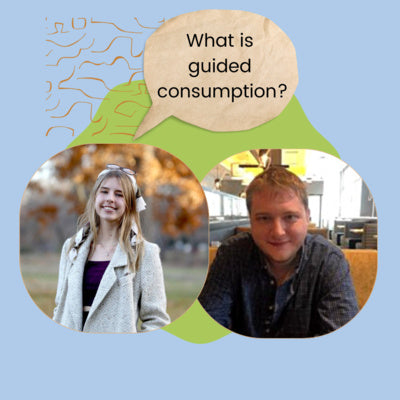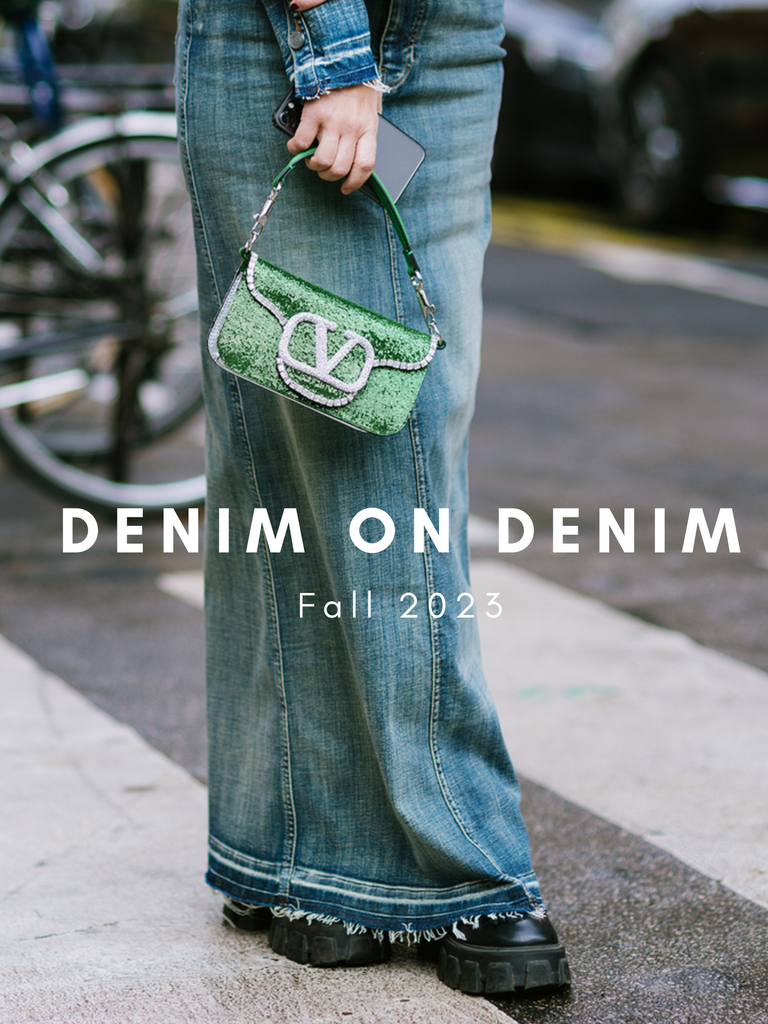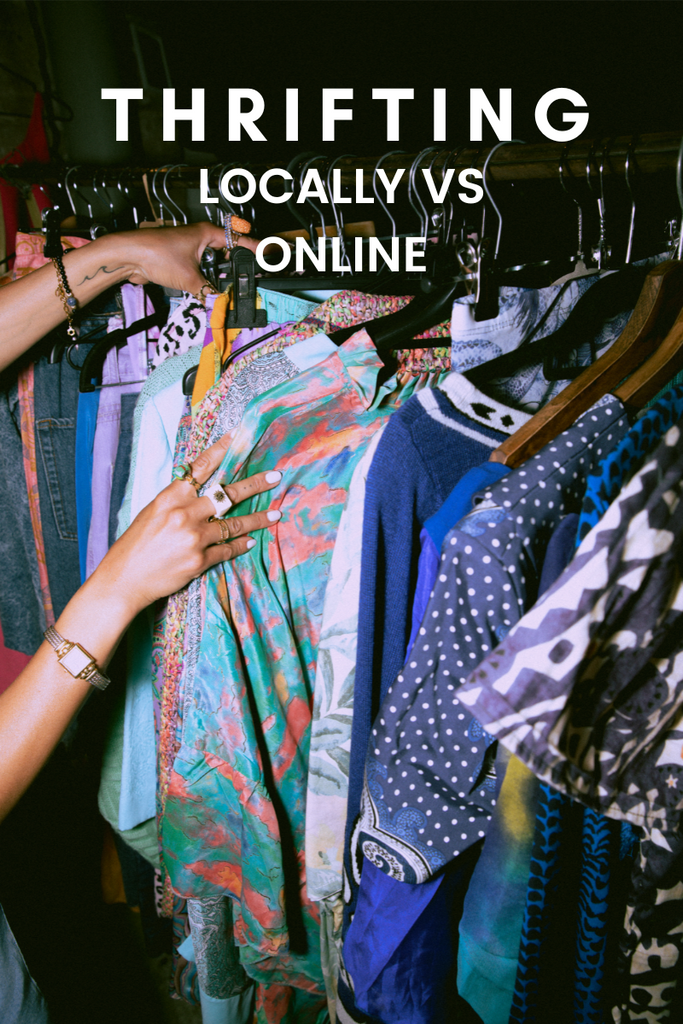Episode transcript
Alexa (BOAS):
Hello, Boas family. My name is Alexa Smith, and if you don't know me if you haven't seen me on Instagram, I am an intern currently working on writing content and communication for BOAS, the Amazon for good. So today we have the first of a very exciting series, where we'll be talking to thought leaders, entrepreneurs, philanthropists and activists with similar ideas as ours on how to save lives while you live yours. And here I am joined by Brad West, who is the founder of the Consumer Power Initiative, and this year he released his revolutionary paper called "Guided Consumption: Funding Charities by Leveraging Consumer Sentiment in the Broader Economy," and he released the effective altruism forum and also has a shorter form synopsis called "Making Trillions for Effective Charities through the Consumer Economy". I will let Brad introduce himself in a bit more detail and how he got connected with BOAS.
Brad:
Thank you, Alexa. I got connected with Boas, I was actually networking with an individual who provides internet and IT support for effective charities and he referred me to Vin and I saw a BOAS and I was just amazed because that's exactly the kind of thing that I'm trying to promote with guided consumption and that's the exact kind of thing that I'm trying to promote with the consumer power initiative. So I reached out to him and he was very excited about the project. He was excited about my paper and he was interested in working with me to do what I think is a very shared vision, which is creating or working toward an economy where effective charities can be the beneficiaries of the profits of our economies instead of just what's the status quo is it's mostly rich shareholders that are able to expand their wealth through the consumer economy and otherwise.
Alexa (BOAS):
I have a couple questions for you and I think our followers will be really interested to hear what you have to say about guided consumption. So let's hop right on into it. First thing, what exactly is guided consumption and why does the world need it?
Brad:
So guided consumption is essentially companies or other firms or different businesses that are owned or basically where the profits effectively go to charities rather than traditional stakeholders. And in our economy today, the vast majority of these firms and the profits, the rights to them, go to people that are already wealthy. And that's something that sort of makes sense because, by definition, the poorest people just can't afford to invest. And unfortunately, they're often the people who could use money the most. I mean, you have people living on, you know, $2.50-2 a day. So I'm thinking, how can we make it so that more of the profits that are generated, trillions of dollars of profits could potentially go to the causes that they're most needed. And that could also go for animal welfare. We have tens of billions of animals that are in factory farming and suffer and also environmental causes. Basically, a lot of the most important causes in our world need funding and they're not adequately funded. So what's guided consumption, the fundamental idea is you have companies that, I think I'm repeating myself, are just, the profits are going to charities. So that would probably require some initial sweat equity from philanthropically minded people, and potential investors, but in any case, you get the equity interest that would normally be held by shareholders and you have that be held by charities. And then you basically advertise that fact to consumers and you use that to gain an advantage in the economy. And I think what's interesting is it's not just consumers that you could potentially gain an advantage from. So I guess if you were expanding to what I'd call guided economics, you'd be looking at all kinds of different economic actors that you could gain favourable treatment from, or I would call it positive discrimination. That's normally a bad word. And in the context of like racial discrimination or sexual discrimination, that is very bad. But in this sense, we're talking about discriminating in favour of the best charities and helping the neediest people instead of the richest people. So it's positive in that context. So basically you get businesses that charities occupy the shareholder equity position and use that to gain an advantage with consumers or other economic actors.
Alexa (BOAS):
Yeah, when I first thought of guided consumption I thought, how is this not a thing already? I think that's a movement for kind of an outcry from consumers for more transparency because a lot of people don't know a lot about the social and environmental corruption that comes from their investment when it could otherwise help the effective causes.
Brad:
Yeah, there is a kind of transparency that's limited because when you go to the store and you get like some dishwashing or laundry detergent, there's somebody else that's on the other end of it that's gaining a benefit from it, a profit, and you have no idea who that is. You're not even considering that aspect of it all. And I mean, I think that there should at least be some, or it could be some aspect of your consideration. And I think in a lot of contexts, there isn't much different differentiation between products like if you go with one dishwashing detergent or laundry detergent or one catch-up versus the other there's not going to be much of a difference and if you were thinking hey if I buy this it can help you know some of the poorest people in the world instead of some of the richest people in the world I think that that could be a decisive factor.
Alexa (BOAS):
Definitely, and I think that with guided consumption it's really an education thing. I kind of wanted to ask you about the role of the consumer in today's day and age. So through guided consumption and the consumer power initiative, what kind of shift do you hope to see in this area?
Brad:
Well, I think people define themselves in a lot of different ways. They define themselves as family members, workers, friends, and spouses, they have all kinds of different things. And I think that is primarily what people will be thinking about when consumers are trying to get what helps them. I do think that it's naive and unfair to think that consumers wouldn't be interested in helping themselves. However, what is interesting is I would want them to expand to at least consider the recipient of profit. I think that the nice thing about guided consumption is it doesn't cost something more to have an identity as a charity. This is a little confusing, but for instance, if you had a group of investors that wanted to buy out a company, say for five million dollars, they wouldn't be paying any less than a charitable investor would. So the idea would be there wouldn't necessarily be a higher cost associated with purchasing something from a guiding producer and you could help people. Understanding that the consumers are interested in helping themselves, if they can get the same kind of help for themselves at the same price, why not have the least of us in the world benefit from the other side of the transaction? I feel like I'm arguing against myself there for a bit, because I do actually think that we have to make sure that consumers are not ultimately presented with a no-brainer, at least in the later stages of guided consumption.
Alexa (BOAS):
That makes complete sense. For a lot of us who don’t necessarily have a background in economics or things like that. This concept might seem a little bit ambiguous. Amazing. But it leads back to the question - why doesn't this already exist? So what I'm curious about is what exactly would a shift to guided consumption require and how could we get this new system up and going?
Brad:
There are companies that are primarily owned by charitable trusts, such as Newman's Own, such as BOAS. Recently, there's Bosch, a company in Germany that's primarily owned by a charitable trust as well. So there definitely are instances, or even if you think of Girl Scout cookies, the local troops are the ones who are benefiting from the purchase of cookies. But there hasn't really been a deliberate framing of this or a sort of mass advertising. There hasn't been a movement that has gone along with it. And I think that that's where a lot of companies just are not actualizing the full potential of guided consumption, even though there have been some extremely successful, what I would define as guiding producers or guiding companies. So what needs to happen, as I see it, is a number of things. One would be consumer awareness. Like people have to know about the possibility of helping charities through their normal purchases. And that's one of the projects that the Consumer Power Initiative is engaging in - social entrepreneurship to try to make the public aware of it and create a social movement. And I think that it's difficult to have a social movement, but I think that what makes it possible is that the essential ask of consumers and of the broad public is very modest. We're not asking you to change, to donate a huge portion of your income. We're not asking you to be inconvenienced. We're not asking you to change your diet. I think that a lot of these are very difficult asks for consumers. We're just asking you to pay the same amount for products that you would otherwise pay and get the same quality of products, but just do it through a guiding producer. So essentially, a consumer's choice can make a huge difference for other parties, even though it doesn't have a cost for them. And I think that basically, that's what can go viral potentially. And then ultimately we're going to have to expand at the same time as we're creating the movement and creating social awareness. We're going to want to create the opportunity for consumers so we can endorse the Newman's Own, BOAS, there's Misericordia site that was started by a young man who was inspired by my longer post that supports the Clean Air Task Force and the Against Malaria Foundation and he has some cool clothing items. But while we're engaging in this social movement project, we want to be networking and providing consumers with a way to act on it. Because I don't think that the message is going to resonate as much if consumers can't actually act on it. They'll just say, "Oh, that's a great idea, but what can I do?" The way to do it is to contemporaneously be providing means for consumers to engage in this project. And that's part of what Vin is doing with BOAS and the BOAS team is doing. They're providing a means for that to happen. I'm working on getting a drop shipping store available in the United States that will allow people in the United States to engage in guided consumption and help some of the world's poorest people through their purchases. And then the third aspect is research. We need to be researching the context in which this idea is likely to have the most traction. And one thing that I thought is in areas with lower product differentiation or there isn't as much meaningful differentiation from products that could be a robust area, but we need to come up with research and other empirical analysis because that's what's going to activate the philanthropic sector. Because if we can present to the philanthropic sector that you can more effectively help your cause area by capitalizing and providing the funds for a guiding producer then you can directly donate. That's how you unlock billions of dollars potentially because what they want to do is they want to help the charity. And if we can show that we have a means of helping it more through the creation of guiding producers, then I think that we'll have all the money for capitalizing.
Alexa (BOAS):
And that's totally in line with what BOAS is trying to do, to reduce from the consumer level, reducing the time and energy that it requires to get more sustainable products and just make that a lot simpler and kind of second nature if you will. There are a lot of companies that already donate to charity, but just not necessarily in the same calibre, for example, I believe Walmart recently had a campaign donating profits to Ukraine. There are initiatives like plastic initiatives and things like that, but they're just on a very small scale. So what is the difference between companies donating part of their profit to charity, a percentage of their profit or even 100% of their profit versus companies having essentially their shareholders be these charitable organizations?
Brad:
I would differentiate 100% because if it is 100% then it is effectively acting as a guiding producer. So if there was a product line that 100% of the profits went to charities, at least for that product line, it is acting as a guiding producer. As for donating a portion or things like that, I mean, that's good practice and I would encourage companies to do it. The problem is it creates a fundamental tension. For instance, if you have private shareholders that have the equity position and you're essentially giving away part of the profit, you have a fiduciary duty as a company to maximize profits for your shareholders. So it's difficult sometimes you can make the argument we can gain the press advantage and that and that makes it worth donating it even for shareholders but this fundamental tension, but it doesn't get as much to the charities as if the charities had effective ownership and it just creates a fundamental tension because you're basically directly harming your shareholders, your fiduciaries so you need to have a strong argument for how you're indirectly helping them more than you're harming them. Whereas if charities effectively own the company, then they are your fiduciaries. There's no conflict of interest. In a way, guiding producers are very similar to normal companies. They're trying to maximize profit. They're trying to lower costs and get the most attractive product to make the most money they can for their shareholders. It's just in this case, the shareholder is an effective charity. So there's an alignment between the company's interests and the normal business. I wonder what some conservative economists like Milton Friedman would say because they're still trying to maximize profit. They're doing exactly what conservative economists would say companies should be doing.
Alexa (BOAS):
Yeah, I'll do a quick plug. If you are interested in problems with the current donation schemes of these large corporations go on our blog “Why Do Amazon and Google Actually Donate Their Profits?” what could be something you'd like to explore. But a question for you, Brad. In a non-guided consumption world, who would benefit from a consumer buying from a profit organisation and who from a guided consumption?
Brad:
So in the normal status quo, like the baby formulas or other baby products, purchasing them would benefit the private owners of the company. So it would benefit mostly wealthy people that have the ability to invest their money in firms. So those purchases would benefit usually wealthy people that provided the liquidity in exchange for being able to make money down the line as the company grows. And with guided consumption, the people that would be providing the equity would be philanthropic investors. And thus, the benefits would be redounding to charities such as those who serve the global poor, such as those that try to make a more adjusted relationship with animals such as by ending factory farming or for furthering the environment so that we have a world that we can live on for longer and a better place. So yeah, in a guided consumption world or when you have a guiding producer or I thought of calling it a giving producer or a giving company too, the beneficiary would be a charitable cause instead of a traditional stakeholder.
There are interesting complementarities. Of course, you could have charity ownership or charity profit beneficiary that has nothing to do with the product but it might be more effective if there's a sort of complementarity. So if you had maybe some vegan products or clean cultivated meat products if you were to have the beneficiary be something like the good food Institute or something that is promoting that like that that could make it more appealing to consumers and in it might click more easily.
Alexa (BOAS):
Another question I had for you is how does a guiding company compete with a traditional company?
Brad:
So it competes with a traditional company just like any other company except it's able to advertise its ownership, to gain a competitive advantage not just with consumers but with employees, with advertisers, whatever. But yeah, a guiding producer would just like other companies it would employ employees to produce it. It would buy goods. It would operate just like other companies. At least it could. There's nothing preventing it from basically acting how other companies do for good or bad. It's probably better to try to get them to behave better. And I think that there are a lot of cases where behaving better can be more profitable. So there's a lot of alignment there. But you'd be marketing, you'd be working with your suppliers, you'd be doing all the normal things that a company does, except the group that they're serving is not wealthy shareholders, it's a charity. So it competes just like other companies do, except it has a special advantage because charities are more popular than rich people. So it can hopefully gain positive discrimination with consumers, but potentially suppliers, and advertisers. Like BOAS has said there are lots of consultants that normally charge a higher rate, and for him, they work for free because he's helping charities, and they view it as a worthy cause. And so, even from a selfish perspective, suppliers gain popularity, they gain prestige for being associated with them. So there are just all kinds of advantages when you're working to do good instead of working to make people richer.
Alexa (BOAS):
Definitely. If there's anything else you want to elaborate on how to feasibly activate consumers, to begin with, the new mode of consumption and do you foresee a world where people start to choose to support companies based primarily on critical investment?
Brad:
Yeah, I mean, I think consumers want products that are good for them and are cheaper than them. But the thing is that guiding producers can do that just as well as normal companies. There's no reason that they can't. And I think in a lot of contexts, that can be a decisive factor. A company can offer just as good of a laundry detergent at the same price and people will be like, well I don't know which to go with, but this one clearly helps people, so I'll go with that. And also, what's sort of interesting is with the cost that could be saved potentially on advertising from positive discrimination from suppliers, consultants, or whatever, it's conceivable that you could even offer a lower price point. So what I would say is that if profit destination, like basically where the profits from a company go, plays a factor, even a small factor, in different actors in the economy, whether they're consumers, employees, etc. And if we choose contexts in which those are most effective, and that's part of the research goal, we could potentially have companies that expand and occupy larger market share create enormous profits for charities and generate a lot of money for charities. So I guess you can't rely on, I mean everybody has, you know, they've got work, they've got other things, we can't rely on people to always do the best thing in the world and that's why it's hard to make money with a donation because that's competing with people's savings for their families spending on things they enjoy. This is creating a context that's more realistic for generating profits. Essentially people don't have to give something up to do good and that's a really powerful ultimate feature. If we create the infrastructure then we can allow people to do good without sacrificing. So I think that modest effects if prudently applied, could be parlayed or used to get a tremendous advantage. And I do see a world in which guiding producers occupy a huge portion of our economies and the trillions of profits in our economies are going towards solving the most important problems in the world. Because why not from the consumer perspective? Why not, if you're gonna buy the same thing, why not help the poorest people. Why not try to make a more adjusted relationship with animals? Why not save our environment? I mean in the intermediate phase with like dropshipping, there's probably going to be a premium because we don't have economies of scale. But ultimately we're going to get to the point where there is no sacrifice for consumers. And I guess what I would be asking at this point is for people who want to move to that world to maybe think about whether getting there is worth paying a 5% premium for like a drop shipping thing. Like is it worth it if there's an apron on Amazon for which you could pay $7 instead of 650, is that worth moving toward a world in which charities are the beneficiary? And that's sort of like the early adopter for guided consumption. But that will enable a world in which guiding producers can operate on economies of scale and create either a no-brainer for consumers or actually have it be cheaper to go with a guiding producer.
Alexa (BOAS):
Yeah, that's brilliant. I love that line, not having to do more to do good. In one of your papers, you mentioned “it would almost be psychopathic”
Brad:
Yeah. If you have an identical product with one and identical on the other, if you're going with something that helps rich people instead of like the world's poorest people, that is psychopathy, if you understand it. I think I said psychopathy or confusion.
Alexa (BOAS):
Exactly. Is there anything else that you'd like the audience to take away from the guided consumption?
Brad:
I think it's that people do want to do good. Like whether it's as consumers, whether it's as suppliers, whether it's all kinds of people. People want to do good, Especially if it's low cost to them. And the brilliance of this, in my opinion, is it's creating the infrastructure that people can have really strong effects through positive discrimination without bearing much cost. And I think that much of any, it could be negative costs. I mean, that's ultimately what I'm anticipating that it's actually easier. And yeah, I think that more broadly, people should be thinking about how we can make it so that we can create virtuous systems. Like how can we make it so that the general public, the path of least resistance is that which does good? Because I think that the more that we're relying on people to be angels, the more then we're going to be disappointed. And I think that the high leverage, the general thing that we can do is to create systems in which charities or other positive things have structural advantages. And that's what I'm trying to make, one in which just doing the easy thing is what's helping people.
Alexa (BOAS):
Well, we appreciate everything that you're doing and thank you so much for spending the time with us today. One last thing, is there anywhere that our followers can follow you?
Brad:
Yeah, I'm on Twitter, Brad West, that's my name, and I have some tweets where you can find the essays that I wrote. Also, I have a website, consumerpowerinitiative.org. If you want to sign up there and get our newsletter. Going to the previous question, there is one thing. You never know, you might know someone who might be really helpful in bringing the organization or you might have some insight. Don't think that there isn't something you can do to help because that's what we need to think about: how can we use our connections with people, how can we work together to make the world a more adjust and happy place. Don't underestimate your ability to help do that.
BOAS' Blog
Newsletter
We strive to inspire with our emails, so we don't send many and they're meant to make you buy less and buy better, so no sales emails.



















